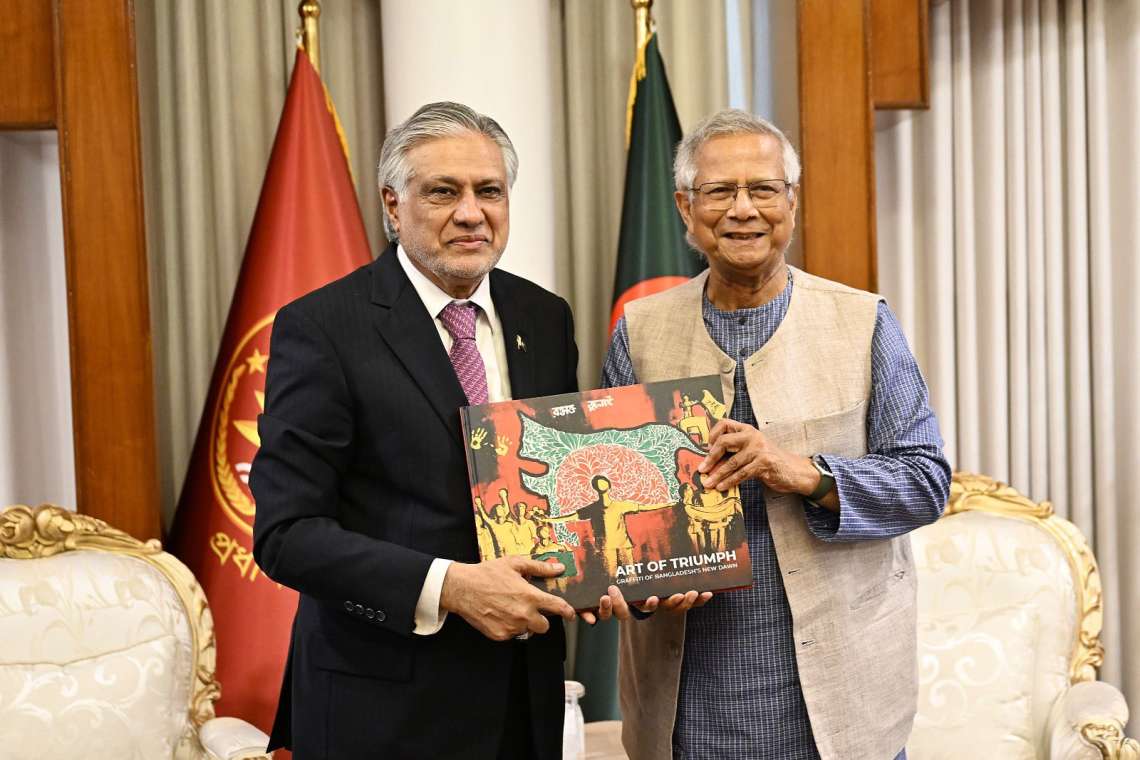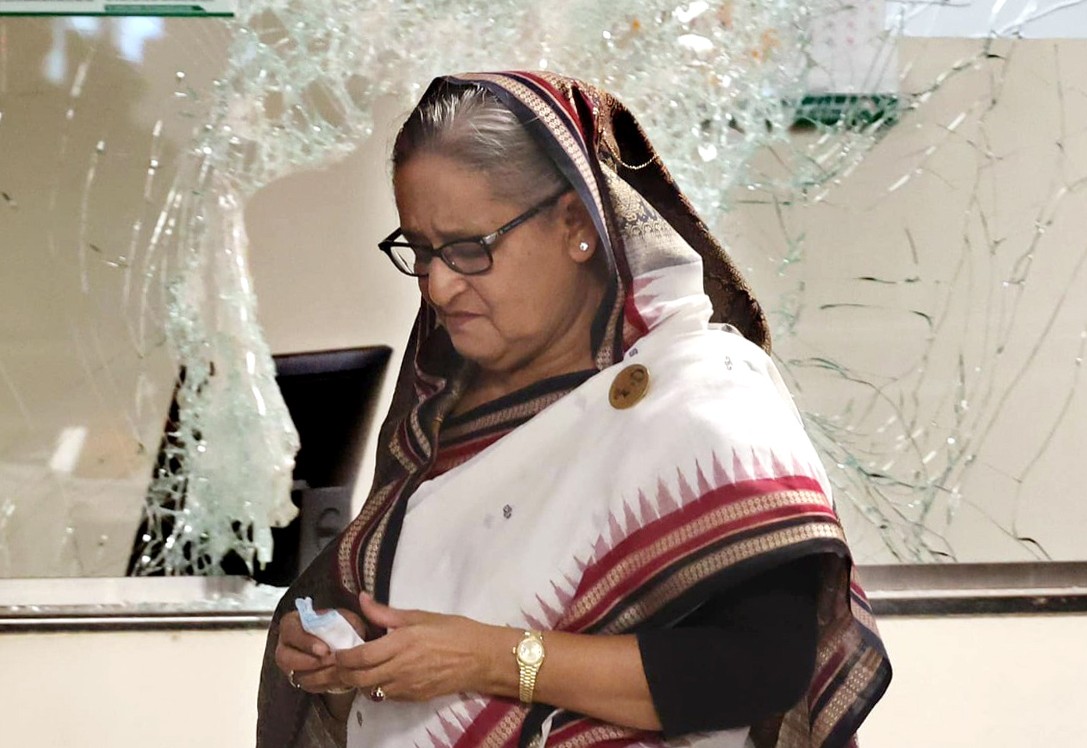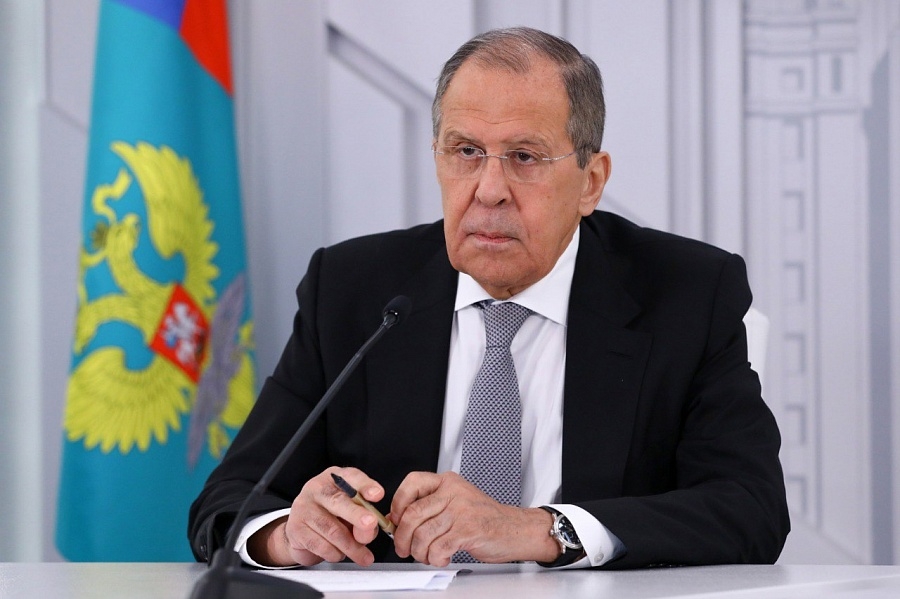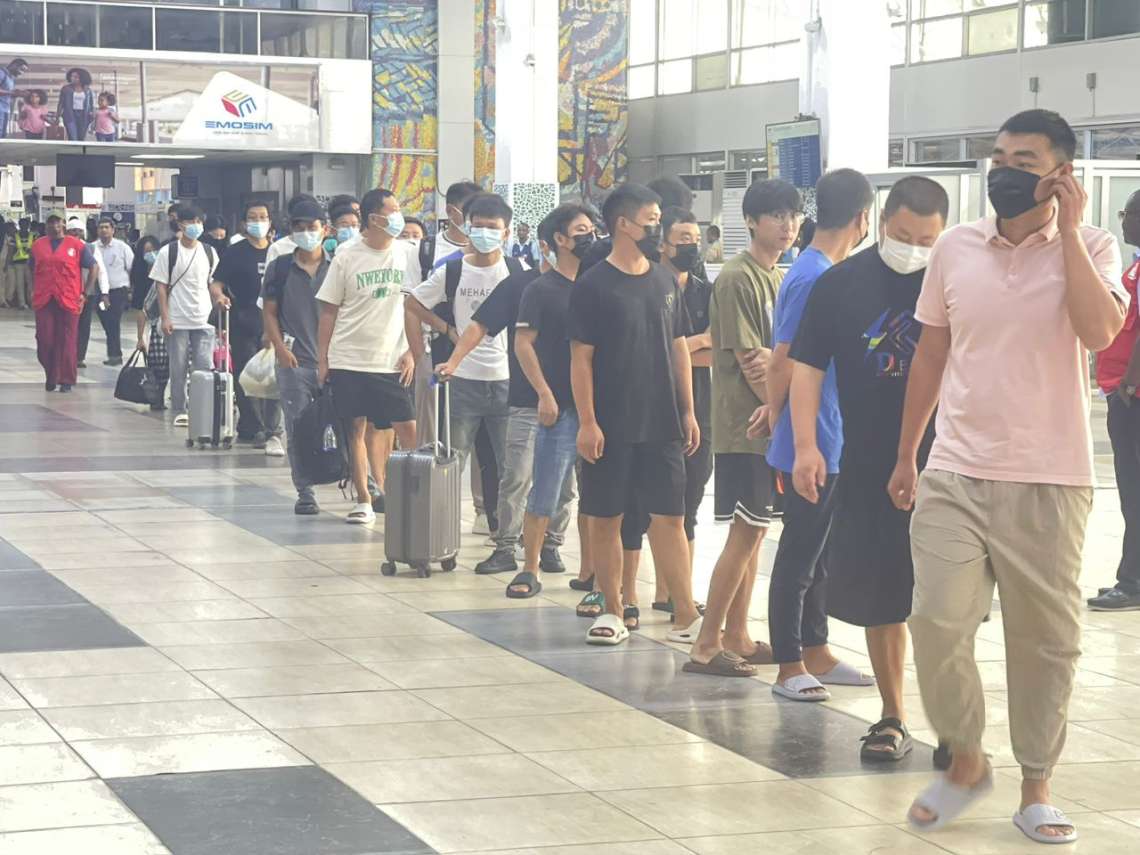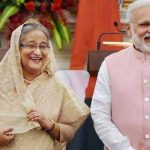During his two-day Dhaka visit, the first in 13 years, Dar made the claims after meeting interim Foreign Affairs Advisor Hossain…reports Asian Lite News
Bangladesh has rejected Pakistani Deputy Prime Minister and Foreign Minister Ishaq Dar’s assertion that Dhaka’s long-standing demand for an apology over the 1971 genocide was settled twice in the past.
“The issue (1971 genocide in Bangladesh) was settled for the first time in 1974. And the document of that time is historic for both countries. Then General Pervez Musharraf came here (to Bangladesh) and resolved the issue openly. As a result, the issue was resolved twice. Once in 1974, and again in the early 2000s,” Dar had told reporters.
Dar, who was in Dhaka on a two-day official visit, marking the first state-level visit to Bangladesh in 13 years, made these claims following a meeting with the interim government’s Foreign Affairs Advisor Hossain at Hotel Sonargaon on Sunday afternoon, local media reported.
Rejecting the claims made by the Pakistani Foreign Minister, Hossain told reporters, “I definitely do not agree. If we had agreed, the problem would have been resolved.”
Hossain stated that Bangladesh had reiterated its stand on three unresolved issues, which include a formal apology for the 1971 genocide, financial compensation for pre-independence assets, and the repatriation of stranded Pakistanis.
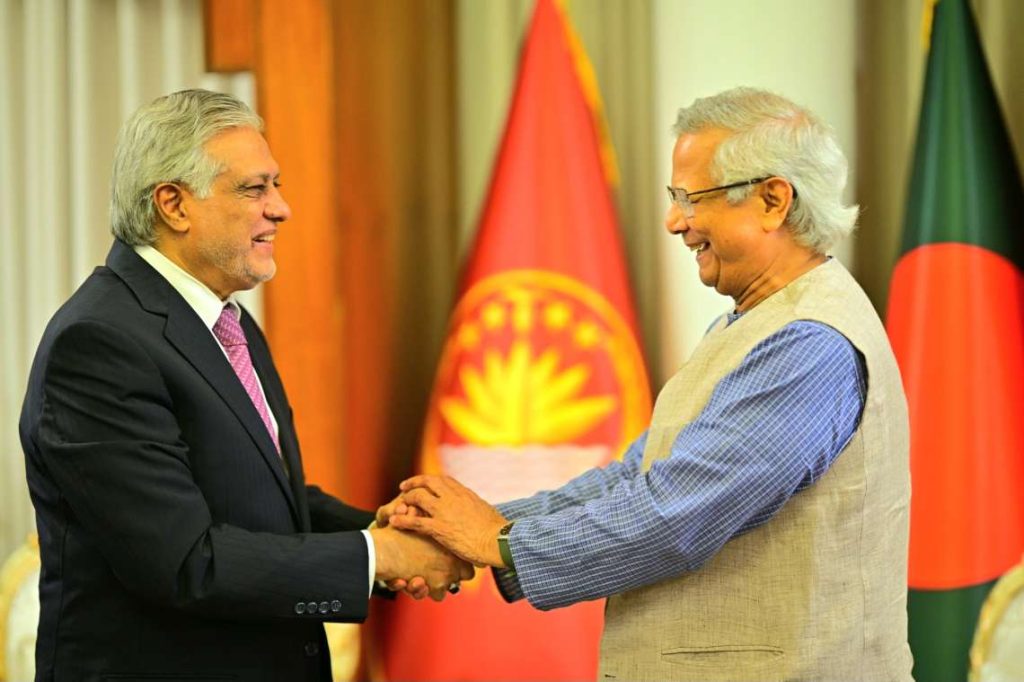
“We want an accounting, which is a financial solution. We want them to express regret and apologise for the genocide. We want them to take back the stranded people,” Bangladesh’s leading newspaper, The Dhaka Tribune, quoted the Foreign Advisor as saying.
“You certainly don’t expect that a 54-year-old problem will be resolved in a one-day meeting. We have presented each other’s positions. For bilateral relations to move forward smoothly, these issues must be addressed,” he added.
Following the meeting, Pakistan’s Foreign Ministry issued a statement on social media regarding the Dhaka visit, but it did not mention any of the 1971 issues that were discussed.
Experts reckon that Dar’s two-day visit to Bangladesh exposes the sheer desperation of the Muhammad Yunus-led interim government to strengthen ties with a country that carried out a genocide killing millions of Bangladeshi Bengalis under ‘Operation Search Light’ in 1971.
The relations between Dhaka and Islamabad were at their lowest ebb during former Bangladesh Prime Minister Sheikh Hasina’s rule, specifically when the Awami League government initiated in 2010 the trial of collaborators of Pakistani forces during the 1971 Liberation War.
The Awami League has condemned Dar’s visit, stating that “without recognition of genocide, normalisation is betrayal.”
Criticising Dar’s remarks, the party slammed the “anti-Liberation, anti-national illegitimate” Yunus regime for failing to register even a minimal protest against the claim, reducing the matter into a farce.


